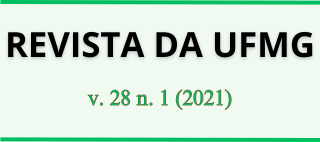Educação Superior Brasileira na Contemporaneidade
Desafios. A Universidade do Amanhã
DOI:
https://doi.org/10.35699/2316-770X.2021.26837Keywords:
university of tomorrow, transdisciplinarity, diversity, flexibilityAbstract
In the first section are described the present situation of the brazilian universities, its ailments and its retrograde vision. In the next section, it is shown a resume of the origin of the brazilian university and its position in the international scenery. The brazilian legislation dealing with the subject is described by the CFE 977/65 and by the NPGP 2011/2020. Next, it is exposed the comparative data of the scientific publications in the world, its impact in society and the brazilian presence in this scenario. Following, in the next section, are described the characteristics of the “university of tomorrow”, that is, flexibility and diversity, interdisciplinarity and transdisciplinarity, in contrast with current characteristics of the brazilian universities, described in the first section. The fourth section treat the questions related to the desirable future of the brazilian universities.
Downloads
References
BRASIL 1965, Ministério de Educação, Conselho Federal de Educação, Parecer CFE nº 977/65.
BRASIL 2010, Coordenação de Aperfeiçoamento de Pessoal de Nível Superior - CAPES. Plano nacional de pós-graduação [PNPG] 2011-2020. Brasília: CAPES, 2010. v. 1.
BRASIL 2019, Instituto Nacional de Estudos e Pesquisas Educacionais Anísio Teixeira (Inep). Censo da Educação Superior 2018: notas estatísticas. Brasília, 2019.
DOMINGUES, I.; DE Oliveira A.G.; SILVA, E.M.P; CAPUZZO, H.; BEIRÃO P.S.L., Transdisciplinaridade: descondicionando o olhar sobre o conhecimento. Educação em Revista, Belo Horizonte: Faculdade de Educação da UFMG v.29, n.1, p.109-116, Jun. 1999.
MORIN, E. Os Sete Saberes necessários à Educação do Futuro. São Paulo: Editora Cortez, 2000.
GDP 2008, “Statistics on world population. GDP and per capita GDP.1-2008 AD”, Angus Maddison, IMF.
KURZWEIL, Ray. The singularity is near: when humans transcend biology, Penguin Books, 2006/en:PPTCountdowntoSingularityLinear.jpg.>.
LOCARNO 1997, Congresso Internacional: “Que Universidade para o Amanhã? Evolução Transdisciplinar na Universidade”, Locarno, Suíça, maio/97. http://perso.club-intenet.fr/nicol/ciret .
NICOLESCU, B. Um novo tipo de conhecimento: transdiciplinaridade. In: NICOLESCU, B.; PINEAU, G., H.; RANDOM, M.; e TAYLOR, P. (Org.) Educação e Transdisciplinaridade. Brasília: Edições UNESCO Brasil, 2000.p. 13-29.
OLIVEIRA, A. G.; SÁ BARRETO, F. C.; CAPUZZO, H.; DOMINGUES, I.; BEIRÃO, P. S. L.; BARBOSA, R. A.N.M.; e ALMEIDA, V.A.F. Preparando o futuro: educação, ciência e tecnologia – suas implicações para a formação da cidadania. R. Bras. Est. Pedag., Brasília, v. 81, n. 198, p. 316-341, maio/ago. 2000.
READINGS, B. The University in Ruins. Cambridge: Harvard University Press, 1997.
SCHWARTZMANN, S. Educação superior e pesquisa científica para o século XXI”, Texto preparado por solicitação da CAPES. Baseado em “Os Paradoxos da Ciência e Tecnologia”,1996.




